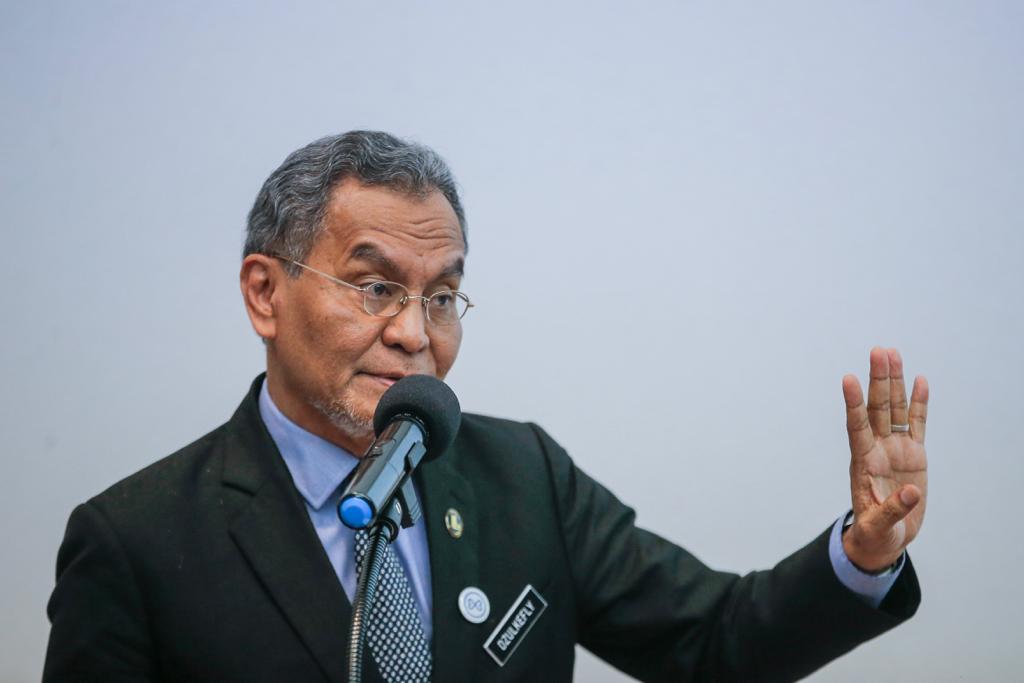KUALA LUMPUR, Dec 12 — The Pakatan Harapan (PH) administration wants to maintain the purity of a person’s lineage, according to Health Minister Dzulkefly Ahmad, amid a rise in teenage pregnancies.
Dzulkefly told the Dewan Negara today that shariah law prioritises lineage, adding that all religions, Islam especially — in his view — would similarly demand its purity.
“This is the new government’s policy, under this Pakatan (Harapan) administration.
“(It) emphasises the aspect of preservation of purity and lineage, family, relationships, the purity of the relationship between parents and child, while at the same time, educates children on understanding relationships.
“(It answers questions such as) how do we relate to one another, within (one’s) family, (among) parents, friends, those who are ‘ajnabi’, and those who are not,” he added, using a term that refers to men who can legitimately marry women.
Dzulkefly told the Senate earlier this afternoon that these aspects are taught in sexual reproductive modules.
The Amanah lawmaker was responding to a question by Senator Dr Nuing Jeluing on whether the Ministry’s of Health’s (MOH) trainer’s training module on sexual health among disabled children and teenagers would be implemented in schools.
The “Live Life, Stay Safe” programme, which was started by MOH in 2009, aims at training teachers, caregivers and health practitioners involved in caring for special-needs children, and on sexual-related elements involving touch, abuse, body parts, emotions, and relationships.
Through the module, public awareness is expected to be raised on the issue of disabled and special-needs children and teenagers going through sexual changes, albeit at a possibly different rate than normal youngsters.
Dr Nuing had raised the issue of rising cases of pregnancies in schools, and said such a module would be beneficial if used by the Ministry of Education (MOE) in schools.
Dzulkefly did not answer the Parti Pesaka Bumiputera Bersatu member’s question but said that all levels of schooling would benefit from such an initiative.
The minister had earlier said that the module has been expanded to include special education teachers at MOE, volunteers and university students, from 2016.
”With more requests by other ministries, disabled groups, universities and parents to carry out this course, this ministry hopes that society will be better empowered to assist those children (by) addressing this issue of sexual health,” he added.
Dzulkefly, meanwhile, said sexual reproductive education does not just include reproductive health education but helps a person develop self-resilience, which will aid in creating a more civilised and high-value society.
As a result from such a module, the Kuala Selangor MP said this would avoid all sorts of problems plaguing what he branded as the post-modern society.
He also made reference to a module called, “Sex Can Wait”, a global initiative that he said can similarly avoid “problems” through a value-based system derived from teachings of religion.
To Senator Nuridah Mohd Salleh’s original question about the impact of the “Live Life, Stay Safe” programme, Dzulkefly said it is able to train parents, teachers and caregivers on educating special-needs children on things such as untoward sexual advancements and taking care of their body.
To a supplementary question by Nuridah about the difference between this programme and a similar one by the Ministry of Women, Family and Community Development, Dzulkefly said there is no specific module on sexual health and awareness that is disabled children-specific.
He added that that over 1,000 people have been trained since 2010 through the “Live Life, Stay Safe”programme.








